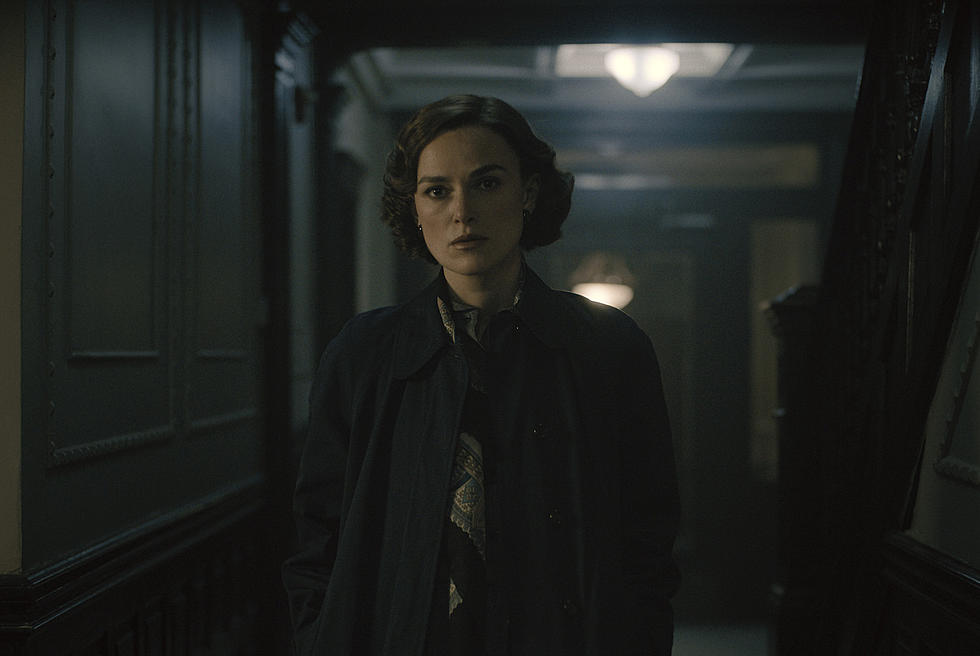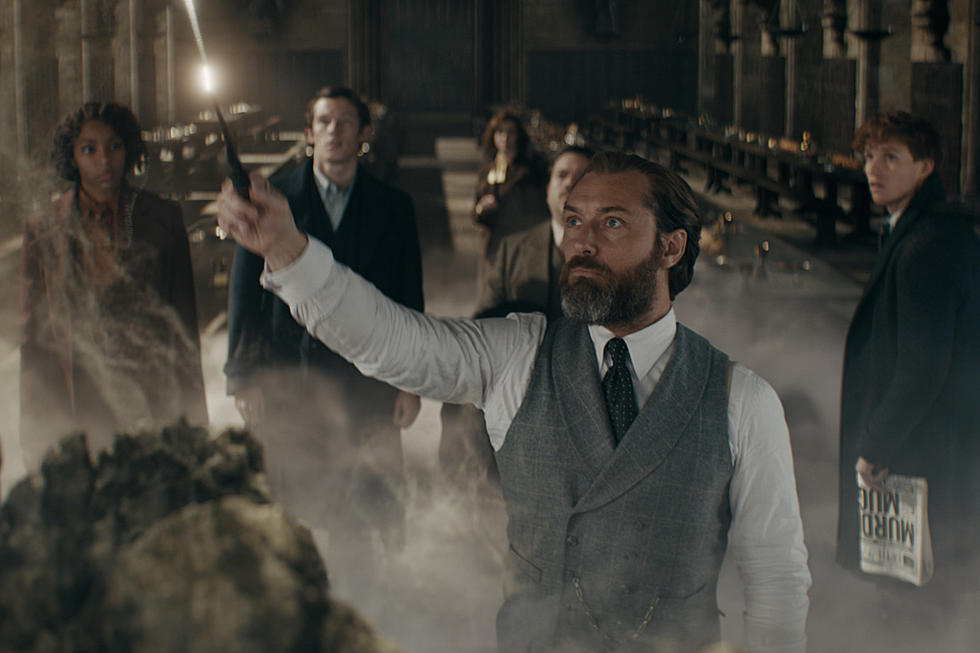
‘The Imitation Game’ & ‘The Theory of Everything’ At TIFF, Two Sides Of The Same Tragic Coin
It’s kind of fitting that I saw ‘The Theory of Everything’ and ‘The Imitation Game’ in the same 24-hour period at the Toronto International Film Festival. Even though these movies have absolutely nothing to do with one another, they will be inherently linked over the next few (and always exceedingly mind-numbing) months as both of these movies position themselves for awards consideration.
This is why awards season is stupid. (Full disclosure: I kind of like awards season sometimes, but it is stupid.) We can’t live in a world in which the media can see ‘The Theory of Everything’ or ‘The Imitation Game’ and just say, “That was a good movie,” then move on with our lives. No, it will be the battle for Best Actor between Eddie Redmayne as Stephen Hawking and Benedict Cumberbatch as Alan Turing. (My money’s on Redmayne, for what it’s worth. Also: it’s worth nothing.)
OK, to be fair, there are a lot of similarities between these two movies as far as theme. They are both period pieces about genius British men who revolutionize the way the world works, only to be unfairly destroyed by either disease or society. And, yes, both Redmayne and Cumberbatch give brilliant performances. And, as I type this, I realize I’m now guilty of my own annoyance.
‘The Imitation Game’ begins with Turing’s arrest for indecency (translation: being a gay man), a narrative device that allows Turing to tell his story to a police officer (and us) about his war efforts working for MI6 as a code breaker.
If you only casually know what Turing accomplished – basically only knowing that Turing broke a German code that helped the Allies win World War II – this movie is downright fascinating. The British government is in possession of a German Enigma machine, which allowed the Nazis to decipher their own codes that were being freely transmitted through the air. The problem is, the Enigma had a number of specific settings and, without the proper settings, there were endless combinations, making just having an Enigma practically worthless. (OK, not completely endless, but we are told that the number of combinations reach a number that has 18 zeros behind it – and then the codes reset to a different setting at Midnight every day.)
Turing comes up with an idea to build a machine that processes the information quicker than a human – basically a precursor to the modern day computer. Watching Turing (who could be a bit of a prick) build this machine, basically against the wishes of a British military general – and, at least for a while, his rival on the code breaking team, Hugh Alexander (played exceptionally by Mathew Goode, who never gets enough credit for being outstanding) – is intense and fascinating. It’s a race against time.
Set against the backdrop of World War II, there’s a snappy pace to ‘The Imitation Game’ that makes it immensely entertaining. Knowing what happens to Turing after the war, it’s certainly not a crowd-pleaser, but there are many, many crowd-pleasing moments.
There aren’t as many crowd-pleasing moments in ‘The Theory of Everything.’ While ‘The Imitation Game’ explores Turing’s relationship with Joan Clarke (Keira Knightley, who he proposes to at one point before he reveals that he’s gay), the focus of the movie is Turing trying to win World War II. The focus of ‘The Theory of Everything’ is almost exclusively about Stephen Hawking’s relationship with Jane Hawking (Felicity Jones).
I should correct myself a bit in that, though there might not be as many crowd-pleasing moments in ‘The Theory of Everything,’ Eddie Redmayne’s performance alone is a wonder to behold, which, yes, is pleasing.
‘The Theory of Everything’ begins with Stephen Hawking at university in the early ‘60s, before his crippling ALS was diagnosed, so we’re treated to seeing Hawking as a slightly awkward, yet strapping young man who is ready to take on the world and just so happens to be a genius. Hawking is given two years to live after the initial diagnosis (people can live after being diagnosed with ALS, as Hawking has proven, but it is very rare) and we watch Redmayne slowly deteriorate over the course of a few years to how we know Hawking today.
I found the scenes that focus on Hawking’s professional accomplishments the most interesting, but, yes, this is a movie about the relationship between two people and a woman who thought she would only have to care for a dying man for a couple of years, instead of having to devote a good portion of her life to Stephen Hawking – and Jones is tremendous in this role. While not nearly as exciting as ‘The Imitation Game,’ ‘The Theory of Everything’ is a performance driven movie. It’s been some time since I’ve gained so much enjoyment by just watching two gifted people act.
So, yes, for the next few months, these two movies will be locked in some sort of bizarre dance of sadness – and then they suddenly won’t be anymore.
Mike Ryan has written for The Huffington Post, Wired, Vanity Fair and GQ. He is the senior editor of ScreenCrush. You can contact him directly on Twitter.
More From ScreenCrush









